CO’s Second Annual LA Power List
In a town where it’s all about who you know, these are the 25 players who have the biggest impact on real estate
By The Editors December 3, 2019 9:00 am
reprints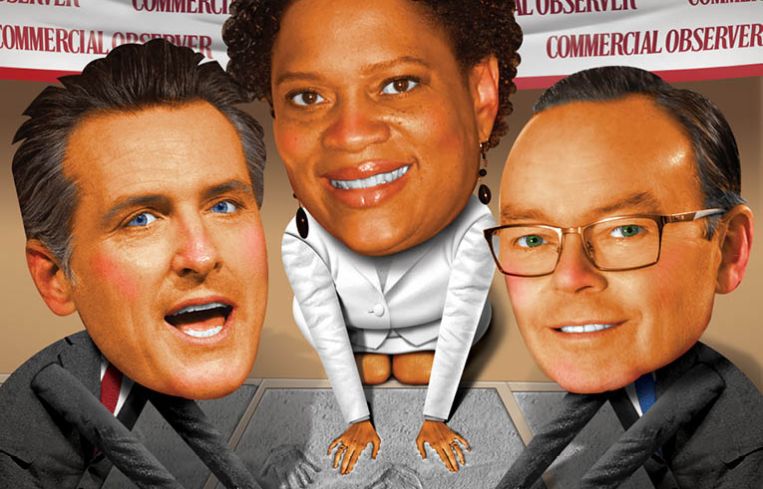
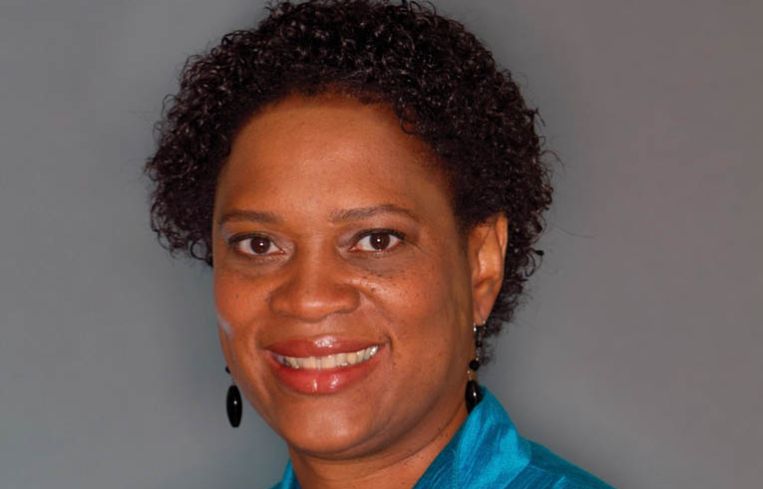
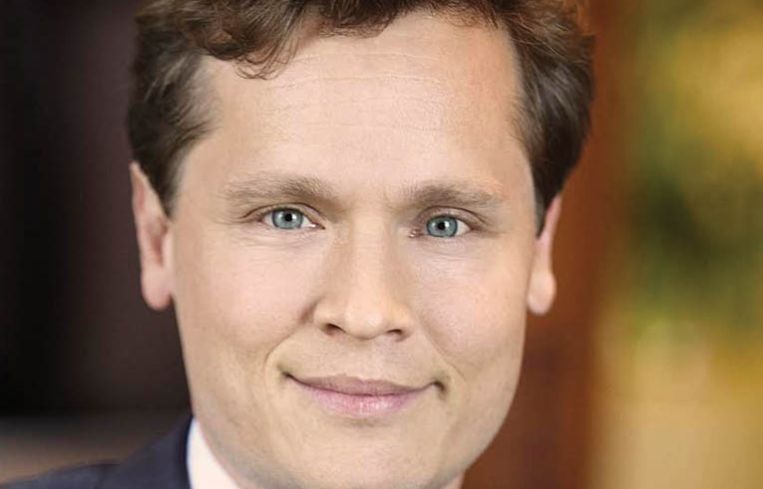
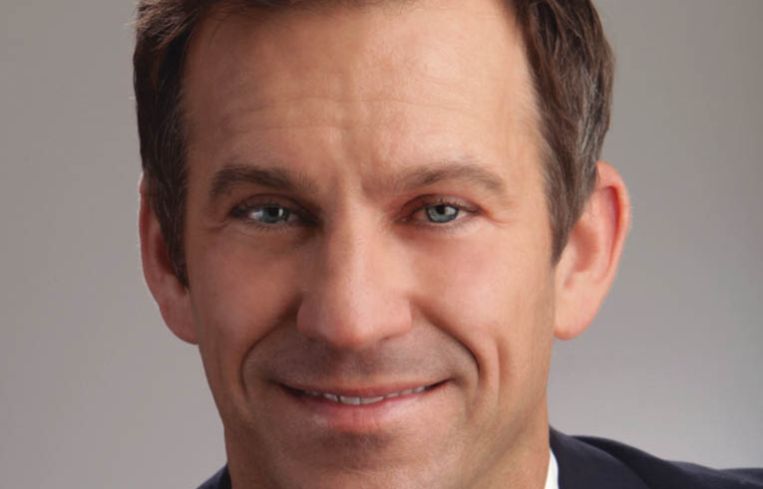
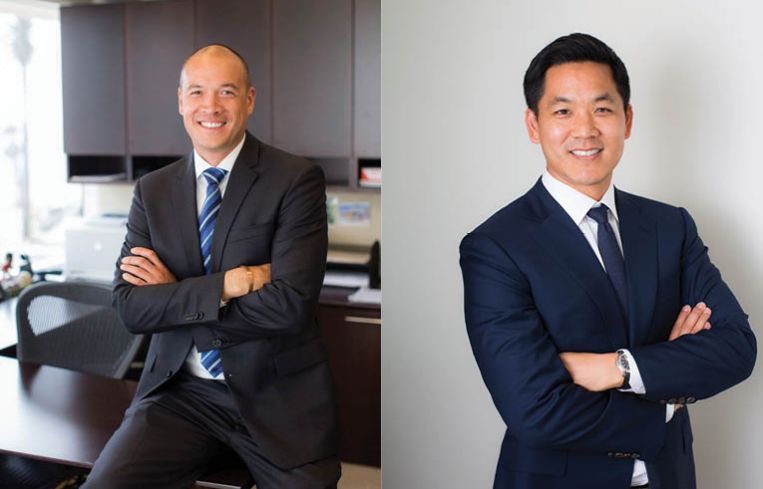
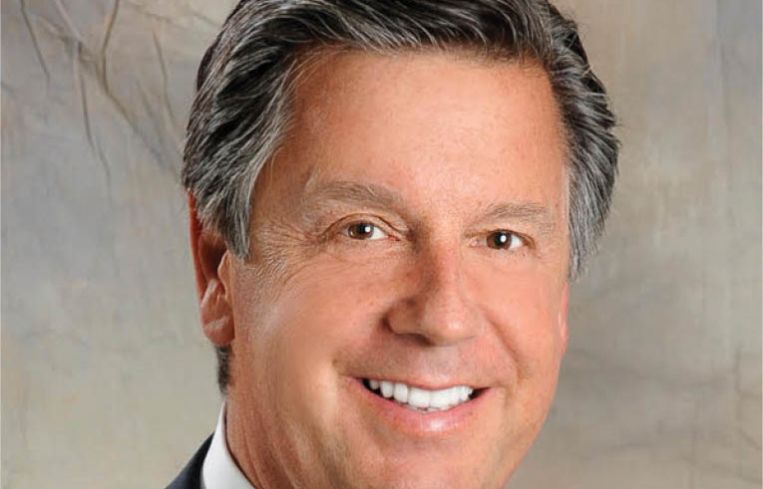

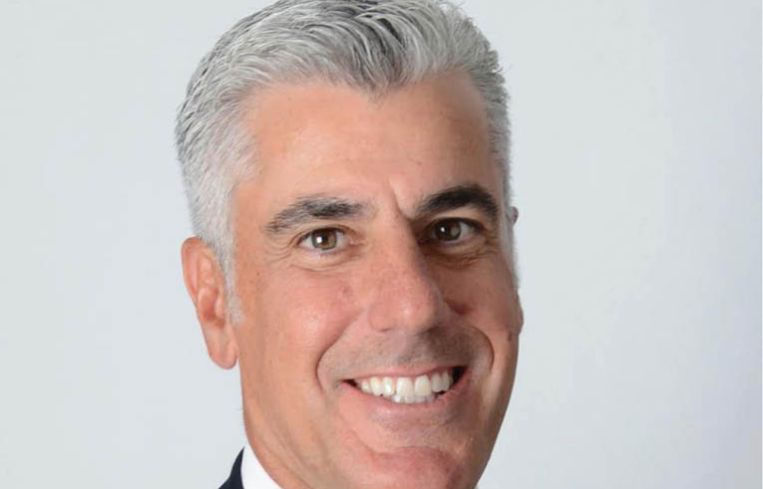
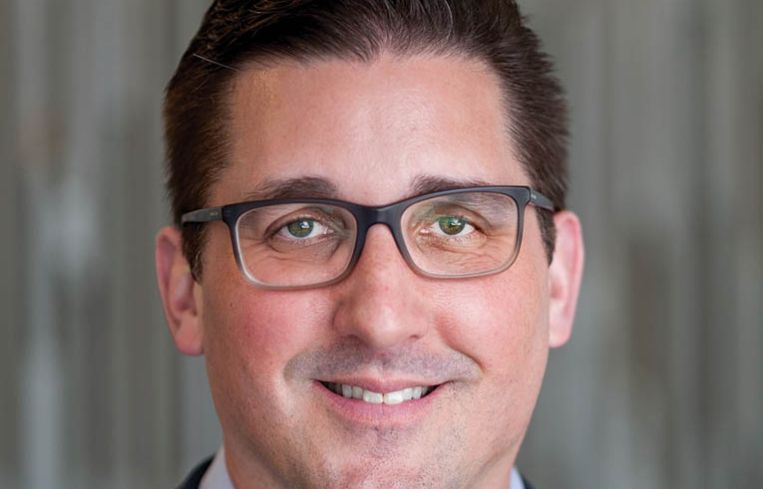
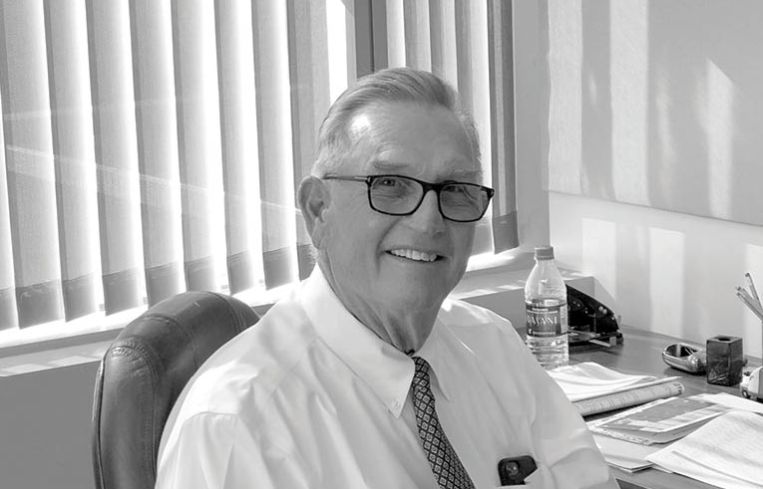
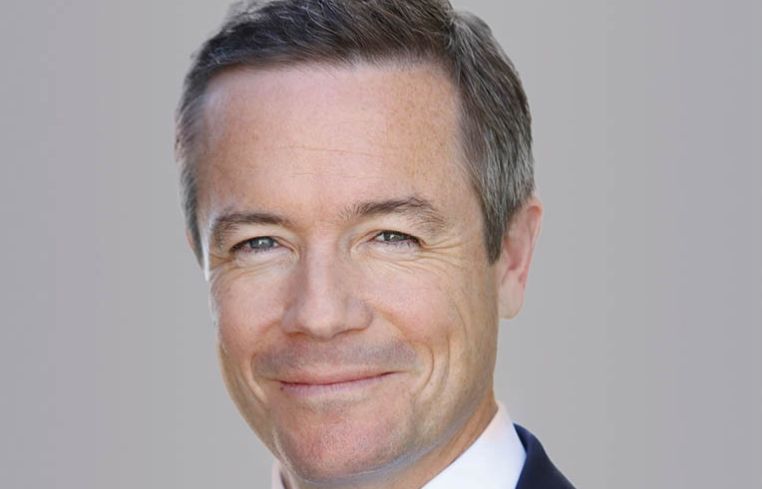

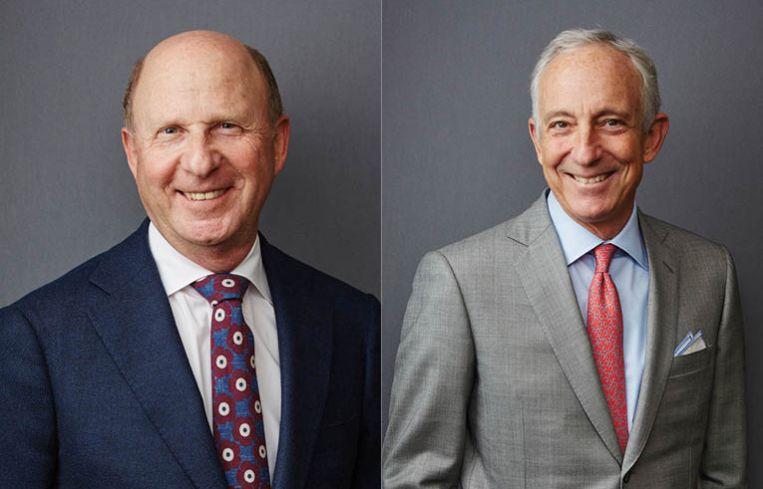
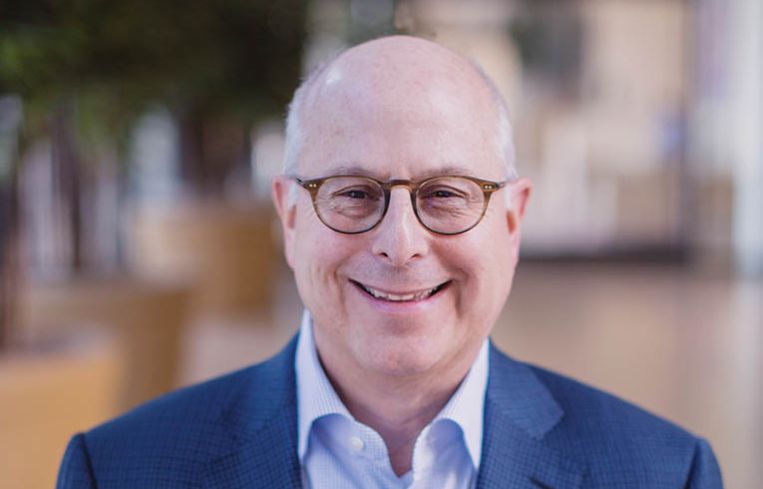

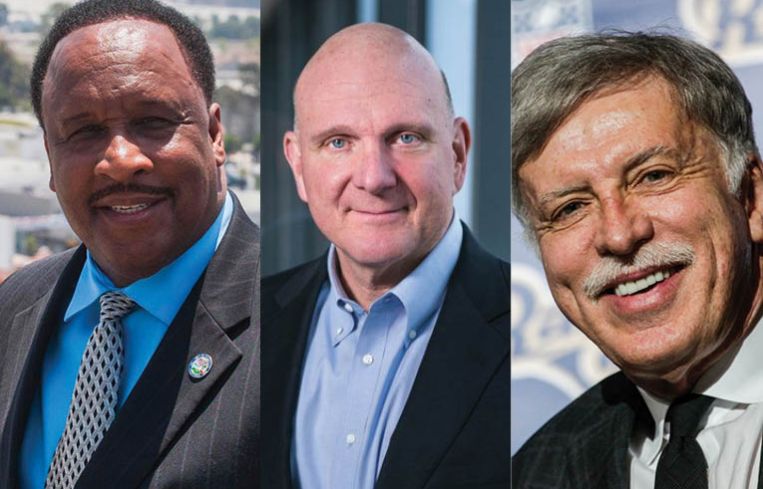
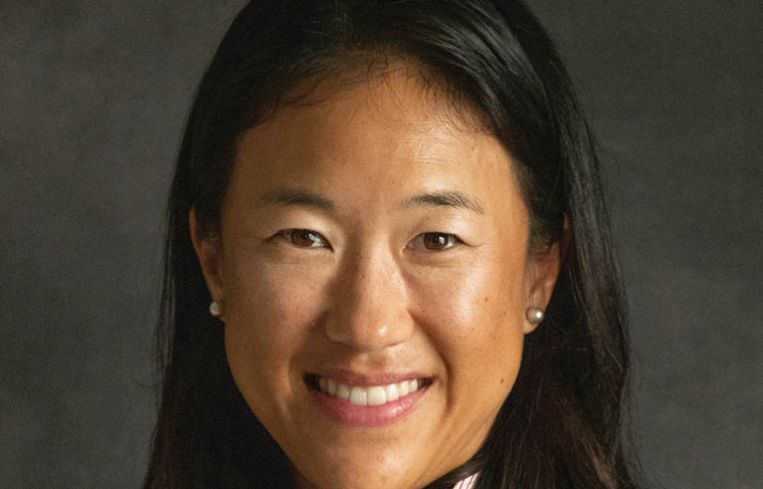

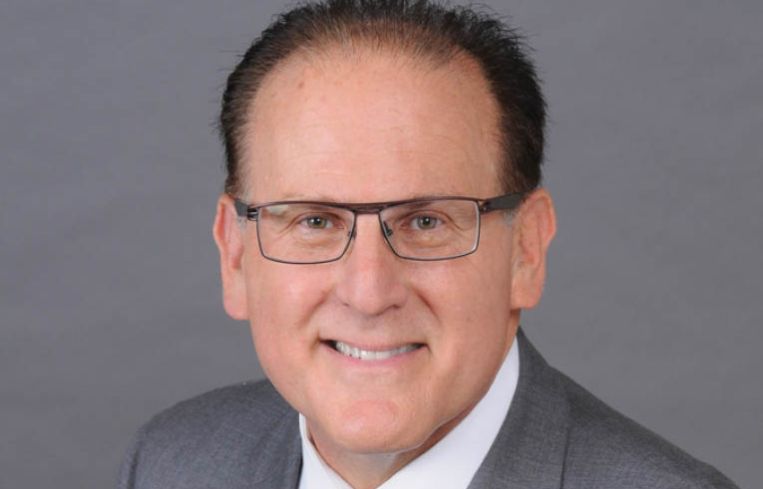
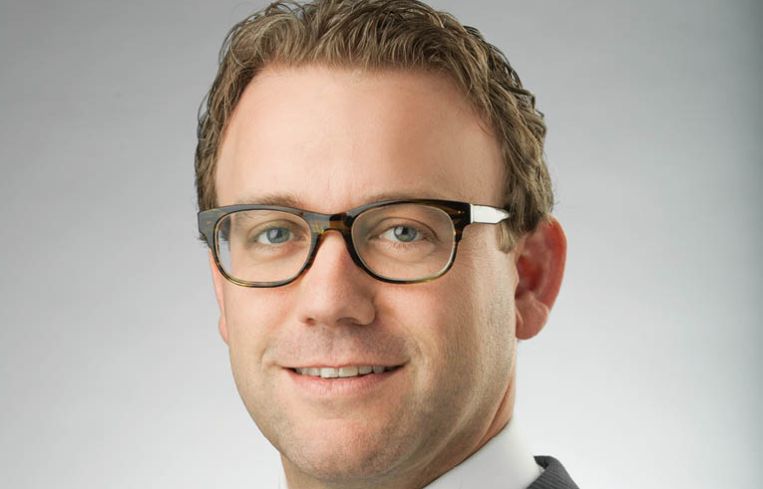
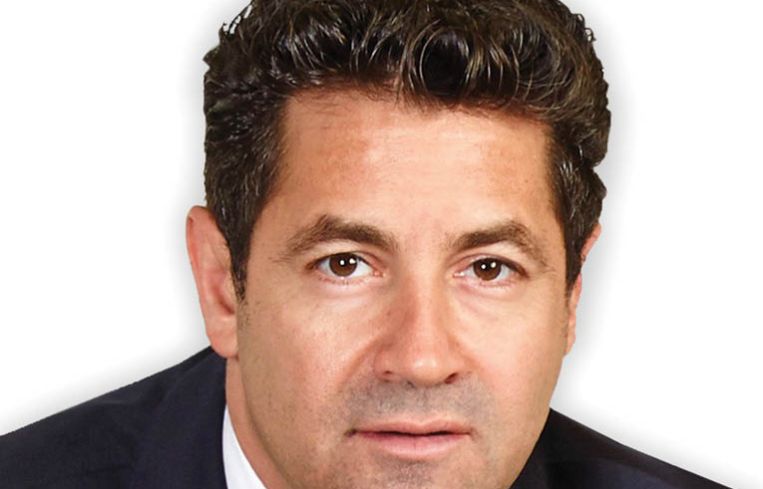

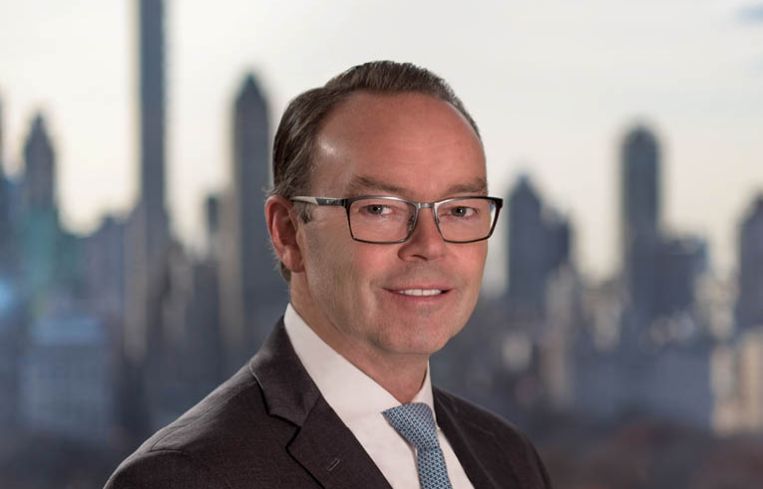
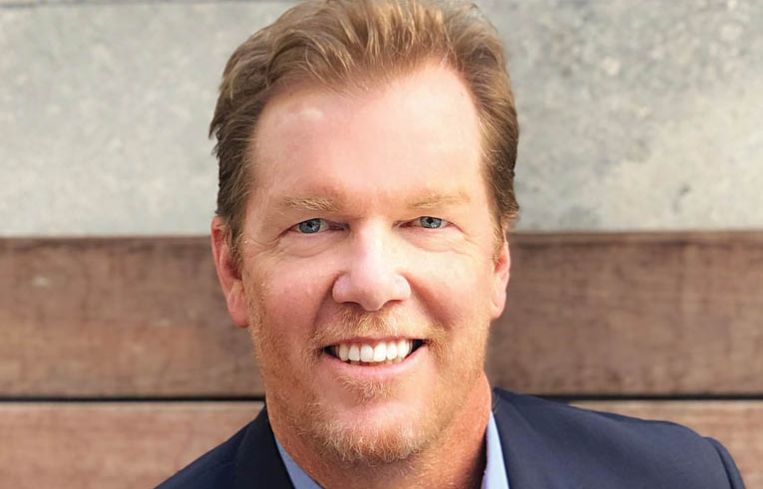
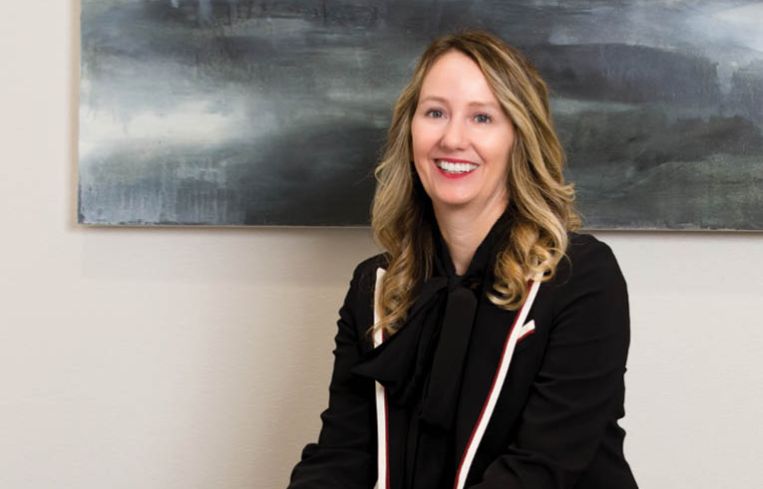
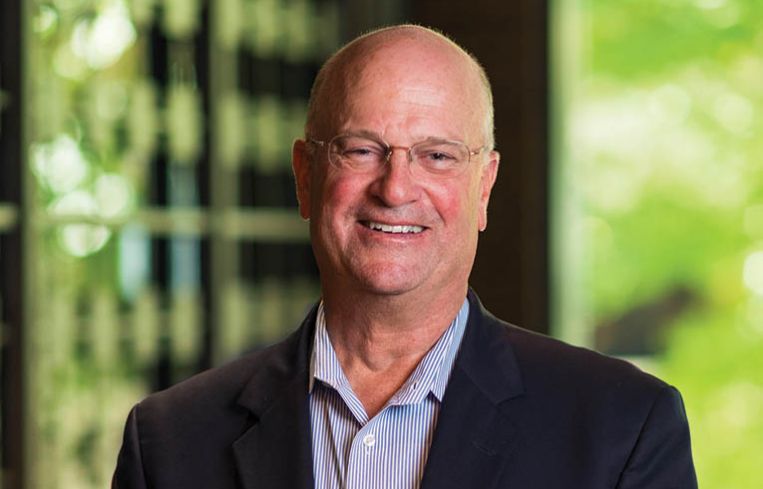
Question: What was the biggest story in Los Angeles real estate in 2019?
Among the contenders, in our humble opinion, would have to be:
(1) The fact that L.A. has suddenly become a tech town. When Google takes a half-million-square-foot shopping mall and decides to turn it into a tech campus, yes, that’s kind of a big deal.
(2) The fact that L.A., the film and TV capital of the world, has seen a number of important trades, with Hackman Capital Partners swallowing up studios like they were after-dinner mints, the latest being the $650 million acquisition of MBS Media Campus from Carlyle. And the fact that Warner Music Group acquired the Ford Factory in Downtown L.A. Pretty compelling stuff.
(3) There’s also the ongoing question of affordability in this less and less affordable metropolis. The State of California certainly seems to be taking the issue of housing pretty seriously, with Gov. Gavin Newsom proposing the most ambitious affordable housing program in the state’s history.
(4) One would have to be particularly out to lunch not to notice the fact that in an Amazon world, industrial and last-mile real estate is gaining ever greater importance, and this will not stop any time in the future. Need further proof? Look at the 27 million square feet of industrial space currently under construction in the Inland Empire.
So which story wins the story of the year? They all do. The 25 names on this year’s list of the most powerful men and women of Los Angeles have their hands in all of these ongoing sagas.
—Max Gross
Robin Hughes
President and Chief Executive Officer, Abode Communities
The nonprofit Abode Communities has been one of the leading developers of affordable housing around Los Angeles for years, and for the past two decades, Robin Hughes has been at the helm.
Since taking charge, Hughes turned Abode into one of the top 50 affordable housing developers in the country and recently completed several projects in California.
In November, Abode had the grand opening for the 140-unit Rolland Curtis Gardens affordable housing and mixed-use complex in South Los Angeles, a project it worked on with T.R.U.S.T. South LA, Curbed reported. The nonprofit is also working on developing up to 120 apartments for teachers with Mercy Housing in Palo Alto, Calif., to which Facebook recently donated $25 million to help get off the ground, according to The Mercury News.
Abode was awarded Capital One’s $100,000 Blueprint to Buildings grant in June for its 100-unit Grandview Apartments project in Westlake — on which it plans to start construction in late 2020 — and finished the $109.8 million renovation of the 21-acre American Gold Star Manor housing campus in Long Beach, Calif., in March, according to the company.
Aside from her work at Abode, Hughes’ also serves on the Los Angeles Homeless Services Authority Ad Hoc Committee on Black People Experiencing Homelessness and the UCLA Ziman Center Affordable Housing Advisory Council. She’s the chair of the Affordable Housing Advisory Council for the Federal Home Loan Bank of San Francisco and is a board member of the J.P. Morgan Chase Community Advisory Board of Los Angeles.
Hughes got her master’s and bachelor’s degrees in public administration from the University of Southern California and joined Abode in 1990 as its housing director, where she’s stayed put, minus a short break from 1994 to 1996.
She’s worked for Citibank, the Community Development Commission of the Country of Los Angeles, the Los Angeles’ mayor’s office and The Richmond Group of Companies. Hughes also served as the City of Los Angeles’ planning commissioner for four years, leaving in September 2009.—N.R.
Jonah Sonnenborn [Finance]
Group Head of Real Estate , Access Industries
As a multi-strategy investment firm, Access Industries’ focus extends well past real estate to other sectors, including entertainment, music, media, tech and even natural resources.
“We find that the strategies inform one another in terms of the vibrancy of the real estate market,” Jonah Sonnenborn, Access’ head of real estate, said.
The proof was in the pudding when the company, which owns Warner Music Group, closed on one of the most buzzed-about deals of the year, combining investments in both real estate and music: its acquisition of the former Ford Factory in L.A.’s Downtown Arts District. Access acquired the 255,000-square-foot adaptive reuse project from Shorenstein Properties in April as Warner’s new headquarters, paying $195 million.
The music company’s employees were spread out across three L.A. locations, and Access was scouting out the perfect property to house them together under one roof.
“We spent a lot of time in the Arts District, which reminded me of Williamsburg or the Meatpacking District in New York or Shoreditch in London,” Sonnenborn said. “We came upon the Ford Factory building, recognized its landmark nature and knew it could be the centerpiece transformative property in an area that was going through a lot of dynamic positive change. As a result, we acquired it as a home for Warner.”
Fittingly, the deal for the creative office space had a creative twist. When Access initially signed the lease deal, it put a purchase option in place, presenting a strategic alternative to the seller and the opportunity to negotiate an attractive deal across the board. (Not stopping there, Access also snapped up 2020 7th Place — right next door — and has plans to develop it as a complementary asset to the Ford Factory.)
“It’s in a very attractive work-live-play location that’s improving dramatically and is extremely desirable for employees, with top art galleries and restaurants in walking distance,” Sonnenborn said of the Arts District.
Access’ first foray into the L.A. market was in 2017, when Access snapped up the historic Sunset Tower — an 81-room Art Deco hotel on the Sunset Boulevard in West Hollywood which sits across from Chateau Marmont — partnering with hotelier Jeff Klein.
“The property is an icon,” Sonnenborn said. “It’s like a beautifully aged movie star in the center of Hollywood.” Through hands-on asset management, Access and Klein have significantly improved the hotel’s bottom line and restored it to its glamorous heyday.—C.C.
Kyle Jeffers [Finance]
Head of Western Region Originations, ACORE Capital
Sure, it’s been a 10-year bull market for real estate. But for ACORE’s Kyle Jeffers, a conservative mentality forged in the fires of the financial crisis has been a critical tool for making smart underwriting decisions, even while sailing smoother seas.
“Going through those periods when we were so deep in the recession and there were so many issues and workouts, it really makes you aware when you’re structuring loans today, thinking about the things that can go wrong,” Jeffers said. “It gives you the foresight to think about things that you don’t think are going to happen.”
When the bad times hit, Jeffers was a managing director at Coastal Capital Real Estate Advisors, where he worked alongside several of his present-day ACORE colleagues, including Boyd Fellows, Warren de Haan, Chris Tokaski and Stu Ward. There’s been no daylight between the close-knit group ever since, who moved together to Starwood Property Trust in 2010 before setting out on their own once more to start ACORE Capital.
Jeffers, along with de Haan, has held down the fort in the pioneering debt fund’s Los Angeles office in Brentwood ever since.
“I love the lifestyle here, and everything about the real estate community is fantastic,” Jeffers said. It’s also been a first-rate place to do finance deals, he added, because unlike some other U.S. gateway cities, the market has remained much more insulated from signs of overheating.
“Institutional capital has always been interested in New York and San Francisco, but those markets have become really expensive to do anything,” Jeffers said. “Over the last three to four years, you’ve seen a bunch of institutional capital come into Southern California as the technology companies grow. Google’s here and Facebook’s here. The Silicon Beach area has become a real thing.”
Jeffers’ office has enjoyed no shortage of opportunities to get in on the fun. Just last month, it lent $120 million to fund GPI Companies’ conversion of a former Macy’s store in West L.A. into a sleek office development. It also lent $56.3 million against an office building on San Vicente Boulevard in Brentwood that’s due for an upcoming renovation.
Some of Jeffers’ most exciting work has also landed in other West Coast metropolises. In October, it handed a $97.9 million, 10-year loan to the developer of an almost-completed office building in Portland, Ore., marking one of ACORE’s first forays into permanent debt.—M.G.
Chris Graham and Jimmy Yung
Managing Directors, Blackstone
Few singular forces in the real estate industry have as much market power as Blackstone’s asset-management portfolio, but the company’s own lending arm is a dominant presence as well. In Los Angeles, both sides of the business have made major inroads towards conquering the office market in America’s second-largest city.
In the last two years, the West Coast acquisitions team, led by Chris Graham, has picked up 5 million square feet of office space in the city, centered around a set of six office buildings near some of the city’s biggest legacy studios. And its lending arm, led by Jimmy Yung, has made a splash with two major office loans — one to Jeff Worthe and Stockbridge, the other to Northwood and McCarthy Cook — worth a combined $1.22 billion.
“The strength of our platform is that we can work with partners like Worthe across multiple strategies,” Yung said. (The Santa Monica, Calif.-based developer is also Blackstone’s partner in part of its equity portfolio in the city.) “Our significant experience as a lender on large, complex projects ... positioned us well for the opportunity.”
Significant experience is right — even on a personal level. Graham has lived in L.A. for more than two decades and has wanted to work with “sticks and bricks,” as he put it, since taking a college real estate course at the University of Southern California. Yung was born and raised in the City of Angels and returned there 10 years ago after a succession of private-equity gigs that saw him living in Bangkok, Tokyo and Hong Kong.
Both averred that the company’s secret sauce is nothing more mysterious than a good, open-minded rapport among its executives.
“What differentiates Blackstone is the unique culture ... that emphasizes a team mentality, connectivity and knowledge sharing,” Yung said.
“Constant communication and free-flowing ideas ... are keys to staying ahead of the pack,” Graham added.
Not that we don’t believe them — but an insane stockpile of capital can’t hurt, either.—M.G.
Bert Dezzutti
Executive Vice President, Western Region for Brookfield Properties
Bert Dezzutti has been representing landlords and tenants in Downtown Los Angeles since 1985, long before the city’s current development boom. So, it’s no surprise that he’s now directing plays for the biggest owner of office properties in the market.
Dezzutti made his bones as a broker for what is now CBRE, and then transitioned into a position with Koll Company where he was involved with the development, construction and management of new buildings. That role served as a launching pad that allowed him to grow and learn new skill sets that eventually helped him understand the full aspect of the industry, Dezzutti told Commercial Observer.
He worked for Equity Office for about nine years and, in 2008, joined Brookfield Properties — the largest office landlord in Downtown L.A. Now he’s responsible for Brookfield’s office investments in the Western region at a time when it’s undergoing a startling transformation.
Brookfield’s portfolio has adapted to the transformation, of course, and includes 10 million square feet of office space, 650,000 square feet of retail, and 2,900 units of multifamily.
The investment in multifamily is a change of pace for the firm. But it’s no coincidence that as demand grows for residential use in Downtown, one of Brookfield’s largest recent investments calls for about 785 condos. Construction started this June on the 64-story tower at 945 West Eighth Street. It is set to open in 2022.
“Obviously, we’re very bullish about Downtown L.A. as a whole,” Dezzutti said. “The market has all the elements that we’re drawn to … We love the dynamics, and its advancement with everything from the Metro expansion to all the new cultural space.”
Brookfield’s multifamily platform will continue to grow along with its investment in more property types. But the firm is also still establishing new opportunities to turn underused properties into some of the most attractive redevelopments in the country.
The firm is putting more than $170 million into the transformation of the California Market Center in Downtown. The site is under extensive renovations which call for about 600,000 square feet of remodeled space for fashion and apparel tenants, 1.2 million square feet of creative office space, and 150,000 square feet of retail space.—G.C.
Gavin Newsom
Governor of California
California Gov. Gavin Newsom is trying to change the face of residential development and real estate throughout the state like no politician before.
It started after he was sworn into office last year and he vowed to increase housing production with the goal of delivering 3.5 million new homes by 2025. Experts have said that’s too ambitious, as it would require an unprecedented influx above the average delivery of less than 80,000 homes each year over the past decade, according to the state housing department.
But in October, Newsom made his biggest housing move yet when he signed AB 1482. The bill caps annual rent increases for multifamily properties to 5 percent plus inflation. It will also require landlords to provide a reason to evict a tenant who has lived at a residence for at least one year. Approximately 1.2 million additional households in Los Angeles County are expected to have rent control under the new law, including some 374,100 units in the city of L.A.
Landlords throughout the state are preparing for the new rent control to take effect in January. Industry leaders from groups like California Rental Housing Association criticized the law for not doing more to increase housing production. Daniel Yukelson, executive director of the Apartment Association of Greater Los Angeles, said the new law will only increase the risk to potential investments in rental properties.
But a larger challenge that will be in favor of the real estate industry is still ahead for Newsom. He’s also vowed to bring back the contentious SB 50 bill which failed to pass the Legislature this year. Lawmakers are set to bring the proposal, which will eliminate restrictions and up-zone massive amounts of properties throughout the state, back to the Legislature in 2020 for another fight. If approved, it would likely lead to more dense housing and taller development throughout the state.
Newsom has been rolling back policies and laws that hinder housing development. He approved bills like Senate Bill 330, which addresses increasing costs and barriers that slow housing development by restricting municipalities from imposing additional limits and fees on projects, as well as speeding up the entitlement process.—G.C.
R. Todd Doney
Vice Chairman, CBRE
Even though R. Todd Doney’s family worked in real estate, when he graduated from college with a real estate degree, Doney’s brother advised him to go work for a big company first.
Doney started at Cushman & Wakefield in the 1980s, where he said John Cushmann III was the greatest mentor he could ask for. Then Steve Siegel and Mitch Rudin with Insignia recruited him for the West Coast, before Insignia was eventually acquired by CBRE in 2003.
Doney said he was fortunate in the 1990s to represent Disney on about 3 million square feet of transactions in a 36-month period. Those relationships led to more relationships, and a career closing deals for prominent tenants like Cedars-Sinai and Hudson Pacific Properties, totaling hundreds of transactions with millions of square feet per year.
Last year, Doney represented landlord Douglas Emmett in the lease for 456,000 square feet at Studio Plaza in Burbank. He represented CBRE Global Investors, the real estate investment arm of commercial brokerage arm of CBRE, as it relocated its headquarters in Downtown Los Angeles to Figueroa at Wilshire at 601 South Figueroa Street, which is owned by Brookfield. CBRE Global signed a 10-year lease for 32,000 square feet in August 2018.
This year, Doney has repped more big names: Alongside Blake Mirkin from CBRE, he represented Hudson Pacific in securing Google at Westside Pavilion, which is being converted into a 584,000-square-foot office property. He also represented Cedars-Sinai as it expanded its lease at the Pacific Design Center in West Hollywood this year.
“L.A. isn’t historically a big pre-lease market,” he said. “It is now, thanks to the last wave with tech firms. Tenants are leasing 600,000 square feet and committing to projects that aren’t available for two to three years.”
He said it’s only a part of why the content race taking over the production and studio space around the country is so beneficial to the market and the greater economy of the city.—G.C.
Chris Allman [Finance]
Managing Director, Debt and Public Capital Markets, CIM Group
CIM Group is one of the few investment groups that is both a large-scale lender and a large-scale borrower — and Chris Allman is at the center of both.
As the head of the debt capital markets group at CIM, which has roughly $31 billion of assets under management, Allman procures debt and equity capital for its developments and transactions and is on the committee that approves the more than $1 billion in loans that CIM originates each year.
Allman moved into private equity after a decade in banking, but he decided to get out during the great recession. After joining CIM in 2013, one of his primary goals was to coordinate the debt activity at CIM and solidify its relationship with lenders. Under his leadership, CIM reduced their number of lenders from 100 to 25, while tripling its balance sheet, Allman said.
“When the market goes down, it’s powerful to be asymmetrical with the banks,” Allman said. “No one deal is worth the relationship.”
Some of CIM’s recent deals on the lending side include two $100 million construction loans for multifamily developments in Phoenix and a $43 million condo loan in Los Angeles. On the capital side, CIM closed on a $335 million loan from JP Morgan Chase for the Watchtower conversion in Brooklyn and refinanced a condo tower in Chicago with a $175 million loan.
Allman says that CIM’s competitive advantage is that they only lend in the 15 markets where they also develop.
“We only lend on construction loans where we build assets, so we know exactly what’s going on in the market,” Allman said. “We understand this market, we have connections in this market, if you have a problem we can help you.”
In addition to work, Allman is an avid tennis player, a whiskey aficionado and has been dabbling with intermittent fasting. He also religious about the gym. “It’s something I do every day. I’m very consistent. It’s very much like meditation for me,” he said.—C.G.
Tom Taylor
Senior Executive Vice President, Colliers
As senior executive vice president, Tom Taylor is responsible for the development and growth of Southern California’s Industrial Inland Empire real estate market — and if ever the Inland had a moment, it was 2019.
Of the 30 million square feet of industrial space under construction in Southern California, 27 million are located in the Inland Empire, which reigns as the top industrial market for investment and development in the country. According to a recent market report by Savills, industrial rent growth will likely continue to out-perform all other property types as the e-commerce world continues to drive demand for more logistics and warehouse space.
Taylor joined Colliers in 1980 in the Greater Los Angeles and San Gabriel Valley Region. Between 1985 and 2009, Taylor held several executive level positions within Colliers. He managed new offices, oversaw strategic marketing and business development and leasing transactions for Collier’s multimillion-square-foot portfolio.
Over the last 40 years, Taylor has participated in all aspects of commercial real estate and represented numerous private and corporate clients as a leading expert in land and commercial property sales, leasing, investment and development.
Both Taylor and his longtime partner Steve Bellitti currently specialize in large industrial building and land leasing and sales transactions. They both have experience with million-plus-square-foot leasing deals, which has enabled them to become a strategic partner for many top-tier commercial property owners.
Their largest transaction last year was a $100.5 million, 927,708-square-foot sale for CH Realty to Alere Property Group in Redlands, Calif.
Taylor will oversee the leasing for the 160,000-square-foot development by Steam Realty Partners in Fontana, according to media reports. He also represented Watson Land Company at Watson Industrial Park Chino, which last year secured two leases totaling 1,168,080 square feet of industrial space.
Ledo Capital Group hired Taylor, Bellitti and others at Colliers to market 20 acres of industrial buildings known as The District Business Park, which will be completed in the first quarter of 2020. It consists of four buildings totaling 425,000 square feet at the ramp at Heacock Avenue near major retail amenities.—G.C.
Andrew McDonald
President of the West Region, Cushman & Wakefield
Andrew McDonald has been in the brokerage world so long that he started his real estate career under John C. Cushman III, whose grandfather and uncle founded Cushman & Wakefield.
The native and resident of Pasadena began his professional life in 1996 as an investment analyst at ASIMCO, a Beijing-based private-equity firm that was acquired by Bain Capital. He returned to the U.S. in 1999 to work as an executive assistant to Cushman, who was already a legend, at Cushman Realty Corporation in Los Angeles. The firm merged with Cushman & Wakefield in 2001, and McDonald became a broker.
Over the last 18 years, McDonald has done stints as an executive managing director and managing principal of C&W’s L.A. office, before being promoted to president of the West region in late 2017. In his current position, he oversees Cushman & Wakefield’s strategy and performance in California, Texas, Colorado, Arizona, Washington, Oregon, Nevada and Utah. He also works with Cushman & Wakefield’s national leadership team on issues like diversity, inclusion and recruitment.
“Organically, our growth has been very strong and I’m proud of that,” he said. “All of the groups that our employees and leaders have developed or founded to promote diversity — our LGBTQ group, our Women’s Integrated Network, BUILD [Blacks United in Leadership and Development] and ASPIRE [Asians and Pacific Islanders in Real Estate]— that work is something that builds an inclusive team culture and has helped us recruit great talent.”
In May, he presided over C&W’s acquisition of Austin-based Peloton Commercial Real Estate, which added 40 of the brokerage and property management company’s employees to the Cushman roster. During his 16-year tenure as a broker, McDonald executed more than 600 deals totaling 9 million square feet.
Outside of work, he serves on the boards of directors for the Los Angeles Coalition, California Hospital Medical Center and The Good Shepherd Center for Homeless Women and Children, and he is a lecturer at the University of Southern California’s Marshall School of Business. He is also on the policy advisory board for the Fisher Center of Real Estate and Urban Economics at UC Berkeley’s Haas School of Business.
“The work I do with California hospital encapsulates a lot of stuff I believe in and want to help [with],” McDonald explained. “It serves the most underserved population in Los Angeles. It’s a very mission-driven hospital that cares about care first and bottom line second.”—R.B.R.
Andy Cohen and Robert Jernigan
Co-CEO; Southwest Regional Managing Principal, Gensler
Of all the projects which led to developers making Commercial Observer’s annual list of the most powerful real estate industry players in Los Angeles, one architecture firm’s work singled it out as the go-to designer for the most significant projects in the city.
Gensler is the firm most used by prominent firms like Hudson Pacific Properties, Caruso Affiliated and Brookfield Properties. It’s behind projects like the massive One Westside office redevelopment in West L.A. that’s already leased to Google; the Icon at Sunset Bronson Studios; and Netflix’s Epic office in Hollywood. Gensler is also developing the California Market Center for Brookfield Properties and Facebook’s new office in Playa Vista, and it was the firm behind the Banc of California stadium near USC.
Andy Cohen, co-CEO of Gensler, started with the Pratt Institute in Brooklyn before eventually relocating to California to join Gensler.
“At that time, Gensler was still seen as a startup, but even then, Gensler was looking at and thinking differently about designing from the inside out and for people,” Cohen said via email. “I had the opportunity to help grow and shape our aviation practice and spent the early part of my career building our entertainment practice, among others.”
Rob Jernigan, Gensler’s managing principal for the Southwest region, said things have changed for the industry in terms of what architecture firms can offer. “Back in the 1970s, most projects were for a singular use,” Jernigan said via email. “Firms didn’t have the expertise and these projects were easier to finance. The industry is now much more diverse, largely driven by the need to create mixed-use spaces that are crucial in cities to accommodate all uses.”
The biggest challenge for Gensler is being able to adapt to the biggest challenges that face the city.
“Gensler is able to bring a diversity of thinking to the table, which … allows us to provide the interdisciplinary approach that is needed for cities in this era of dramatic change,” Cohen said. “We are committed to doing our part to address the toughest challenges facing cities, including housing and homelessness, climate change, the future of mobility, and connecting our cities.”—G.C.
Cliff Goldstein and Drew Planting
Co-founders, GPI Companies
Before Cliff Goldstein and Drew Planting founded Goldstein Planting Investments (GPI) Companies, they both worked for Los Angeles-based development firm J.H. Snyder Company. While there, they realized there was opportunity for a developer to do more.
Planting told Commercial Observer that J.H. Snyder focused only on ground-up development, but he and Goldstein figured a firm could also make significant entitlement and reposition plays across all product types.
“It’s what makes Los Angeles so unique — it’s not dominated or restricted to one product,” Planting said. “It’s a fragmented landscape from an ownership standpoint. We saw opportunities in that way.” (In New York, by way of contrast, so much of the business is concentrated in the hands of a few wealthy families.)
Goldstein and Planting founded GPI Companies in 2008, and the firm has been investing in and developing assets throughout the region, from Granada Hills to Beverly Hills. GPI is also helping reshape some historic enclaves. For example, the firm made headlines with its proposal for a 26-story residential complex in Hollywood that was approved by the city this year.
But new momentum built recently for GPI thanks to $500 million from a state pension fund. In September, the company used those funds to invest in El Segundo’s booming office submarket.
This year was solidified as a banner year when GPI announced plans to transform the dead Macy’s department store at the Westside Pavilion into modern office space. GPI purchased the failed department store in February 2017 for $50 million.
“Macy’s was dark, Nordstrom was dark. It was a dark void, and the market had written it off,” he said.
GPI’s plan includes investing more than $180 million into the conversion. Just a couple weeks after that plan was announced, ACORE Capital lent $120 million on the construction of the project.
Planting said the foresight to buy the Westside Pavilion stems from the firm’s focus on being able to “look around the corner.”
“It was about knowing a play was there when no one else did,” he continued. “Where are you going to get six acres in the middle of West L.A.?”—G.C.
Michael Hackman
Founder, Hackman Capital Partners
Michael Hackman never envisioned he would have a stronghold on premier production studios and creative offices in the media capital of the world, but he always knew he wanted to be a serious property owner and developer.
He learned about the industrial real estate landscape in Southern California while working with Majestic Realty, and he started Hackman Capital Partners in 1986 when he was 29 years old.
His first major deal was built on relationships with industrial equipment auctioneers who wanted to take advantage of factory plant liquidations. Hackman purchased a property through bankruptcy and then sold it nine months later for a $2.3 million profit — a third of which went to Hackman. It was the first of hundreds of plant liquidations Hackman completed across four continents.
About 14 years ago, Hackman made a dramatic turn. Because his children were attending school in Culver City, he learned about the demand for office development and the lack of availability. He realized there wasn’t much available space to build new properties in L.A., so future development would have to come from older industrial buildings. That’s when he started to buy, and it put Hackman in position to become a pioneer of the current wave of modern office conversions throughout Los Angeles County.
“We had no idea it would work out this well. It really started to snowball for us,” he said.
Hackman started shedding other properties across the country to focus on SoCal as it evolved from the movie production capital of the world into the content and streaming capital of the world.
“We started to focus on our own backyard,” Hackman said. “That was transformative for us.”
Hackman started acquiring some of the most notable production studios and has continued its modern office conversions. The firm developed the 115,000-square-foot Culver Steps office campus that was completed this year and leased to Amazon. Hackman also bought the century-old Culver Studios property and is currently expanding the space for Amazon Studios production. .
But the firm’s focus has moved outside of Culver City. Late last year, Hackman purchased the historic CBS Television City studio facility for $750 million. In August, he added the 587,000-square-foot Manhattan Beach Studios and its service platform, which traded for $650 million. Hackman is also making major office plays in places like El Segundo, which has been swarmed by media and tech companies looking for modern office space.—G.C.
Victor Coleman
Chairman and CEO, Hudson Pacific Properties
As head of Hudson Pacific Properties, Victor Coleman’s imprint on Los Angeles is hard to overestimate.
Coleman founded the firm in 2006, on the heels of selling Arden Realty, which he co-founded and led, to GE Capital Real Estate. Hudson is a publicly traded real estate investment trust that specializes in the tech and media industries, with nearly 15 million square feet of office space along the West Coast, primarily in Los Angeles, the Bay Area and Seattle.
In Los Angeles it’s transforming Hollywood with a crop of studio developments, and it has partnered with some of tech and media’s biggest players, including Google and Netflix.
In early 2019, Google announced it would fully occupy the 584,000-square-foot One Westside, formerly the Westside Pavilion mall, which Hudson is converting to creative office together with Macerich.
“The ability to swiftly execute on large-scale adaptive reuse projects like One Westside is one of the things that sets Hudson Pacific apart,” Coleman said. “We knew One Westside’s central location, scale and certain building attributes would be attractive to tenants looking for bigger blocks of space. With some modifications, the large floorplates, atrium and interconnectivity between floors are perfect for creative tenants like Google.”
And in October, Hudson delivered Epic, a $200 million, 302,000-square-foot creative office development that will be fully occupied by Netflix. The streaming giant already fully occupies the 325,000-square-foot Icon, its Hudson-owned headquarters on Sunset Boulevard.
The Epic and Icon are two of four sites that Hudson has developed or is nearing completion on near the storied Sunset Studios, which it owns, to cater to the flourishing streaming business.
“Recently, we’ve seen a jump in demand for writers’ offices from [an] array of clients including Amazon, NBC, HBO, Lionsgate and Viacom,” Coleman said in the company’s third-quarter earnings call. “This is another byproduct of streaming production doubling over the last two years.”
Hudson is an old hand at creative office development, which they pioneered in 2013 with Element LA, a 12-acre campus in West Los Angeles that’s anchored by game publisher Riot Games.
Hudson is also highly active in the Bay Area, where it has 26 office properties stretching from San Jose to San Francisco, including the Ferry Building, which it bought last year for $291 million, and one development site. In Los Angeles, it has approximately 1 million square feet under development across three projects.—C.G. and G.C.
Mayor James Butts; Steve Ballmer; Stan Kroenke
City of Inglewood; Owner, L.A. Clippers; Owner, L.A. Rams
The city of Inglewood in Los Angeles County is currently home to zero major sports franchises. But by this time next year, two NFL teams will be well into their first seasons in Inglewood, and the city is also set to add the Los Angeles Clippers by 2024.
The new 70,000-seat SoFi Stadium, led by L.A. Rams owner Kroenke Sports & Entertainment, is set to open in the summer at the $5 billion Hollywood Park development, which will also include retail space, office space, residential units and a 300-key hotel.
Inglewood has been experiencing a development and economic boom since the Rams and Chargers announced plans to move to it, sparking investment across property types, and higher land prices and average rents.
It also brought interest from the L.A. Clippers. Billionaire Steve Ballmer, the former Microsoft CEO and owner of the franchise, wants to move his team from the Staples Center in DTLA to a new 18,500-seat basketball arena in Inglewood. The Inglewood Basketball and Entertainment Center would also include office space, retail space, and a hotel. The $1.1 billion project will be funded by Ballmer.
But the city’s growth has also brought growing pains as residents are reportedly being priced out. About two-thirds of the city’s residents rent their homes, and some landlords have imposed steep rent hikes, forcing the city to step in. In June, before California approved statewide rent control, Inglewood Mayor James Butts approved a rent control measure that caps annual rent increases to 5 percent.
The Clippers project put Inglewood in the middle of a fight between Ballmer, Butts, and Madison Square Garden (MSG) Company, which owns the Forum arena about a mile away. MSG is fighting the arena in court by claiming it forfeited a long-term lease deal on the site where the Clippers arena is set to rise because Butts and city officials told them the property would become a technology park, not a competing arena. MSG recently invested $100 million to renovate the Forum for future events. Butts denies allegations he tricked MSG into forfeiting rights to the land.—G.C.
Teresa Zien [Finance]
Senior Director, Invesco Real Estate Structured Investments Group
Teresa Zien joined Invesco Real Estate near the end of 2017 to help lead and oversee the ever-growing company’s capital markets activities related to its commercial real estate credit lines.
The 41-year-old real estate finance heavyweight, tennis enthusiast, and former University of Pennsylvania rower has spent nearly two decades in the industry, working primarily within large multinational lending institutions.
The six-person capital markets operation that Zien is a part of in Newport Beach, Calif., is expecting to originate around $3.5 billion in bridge financing this year. Since inception two years ago, the firm has provided $4.2 billion in debt.
“We’ve been around for two years ... even in this competitive environment, we’ve been successful, and we’re busy because we capture repeat business,” Zien said. “[About] 60 percent of our book is repeat ... 25 percent [of our deals], we’re partnered with foreign banks.”
Zien said the typical deal in her realm at Invesco is floating-rate, with an average loan size of around $100 million — 65 to 70 percent leverage — and “last dollar,” she added. They focus on coastal markets and institutional sponsors — borrowers who raise capital via sovereign debt funds and similar vehicles.
In September, Invesco provided a $190 million, five-year, floating-rate loan — at a 63 percent LTV — to a joint-venture between Greystar Real Estate and Goldman Sachs backed by two adjacent and newly completed multifamily properties, comprising 432 total units, in Seattle’s South Lake Union neighborhood, per a report from Commercial Mortgage Alert (CMA).
A few months later, in November, the firm doled out a three-year, $200 million loan — with two, one-year extension options — to fund Chicago-based Bridge Development’s redevelopment of a 35-year-old, 1.4-million-square-foot warehouse located in Rancho Cucamonga in California’s Inland Empire region. Bridge is planning to rebuild a similar, but more modern, asset on the site, CMA reported in early November.
Zien got her start as an analyst at Wells Fargo in 2000. She then joined Citigroup a year later, where she remained for nearly a decade, departing as a director who had been responsible for the bank’s CMBS securitization operation. After a stint at Credit Suisse, she became a managing director and COO of Colony Mortgage Capital. After almost two years at Colony Mortgage, the bridge lending platform for global investment management firm Colony Capital, she joined Invesco in late 2017.
She said the reason she “gravitated” to her role at Invesco is due to her deep banking background. “
I work with our banking relationships,” she said. “You talk the talk and you walk the walk after so many years doing it in-house, and you learn how they think.”—M.B.
Jaime Lee
CEO, Jamison Services
After the riots in 1992, Koreatown suffered a significant economic decline. A man named Dr. David Lee acquired a massive office portfolio throughout the Koreatown enclave when prices were low, and the community started the process of rebuilding.
Now, more than a quarter century later, Koreatown has more than rebuilt itself, and it’s currently experiencing one of the most notable economic and development booms in the region. Lee’s real estate firm, Jamison Services, has been the leader since 2013, converting a significant chunk of its office portfolio into major multifamily projects in order to take advantage of the surging population.
Lee’s family members run much of the operations, including his daughter Jaime Lee, who runs the leasing arm. The firm has around 18 million square feet and more than $3 billion in its portfolio, with several projects underway or in the pipeline in Koreatown. For example, in June, the firm secured a $48 million loan for a project with 193 units, and last December, Jamison filed plans to build a 157-unit structure on Serrano Avenue.
And Jamison has recently started making significant moves outside of Koreatown. In the past year, it purchased a development site in West Los Angeles with plans to build 100 units; secured a $54.5 million loan for an apartment development with 248 units in Westlake; signed a new tenant to a 10-year lease in Studio City; filed plans to build a 100-unit development in Sawtelle; and filed plans to build a multifamily project in East Hollywood with 177 units.—G.C.
Carl Muhlstein
International Director, JLL
Broker Carl Muhlstein has been directing commercial office action in Los Angeles for more than 30 years.
He started at what is now Cushman & Wakefield and made a name early on by selling older buildings downtown. In the early 1990s, he started working with the entertainment industry, which led to his work with major sound stages and studios in Hollywood, Culver City and Burbank, with firms like Sony and NBC as demand for production properties rose beyond supply.
Muhlstein joined JLL in 2012, and he has been at the forefront of the wave of top tech giants, media firms, and content creators converting new creative office and studio space throughout the Westside, with firms like Kilroy Realty, Clarion Partners, Gemdale USA, and Burbank Studios.
In April, Warner Brothers announced its plans to buy the Burbank Studios, a deal that Muhlstein helped put together. He also represents landlords and helps lease massive projects like the 200,000-square-foot creative office campus in Santa Monica that’s owned by Colorado Creative Studios.
One of Muhlstein’s projects is a 450,000-square-foot Woodland Hills office that’s currently under construction in the Warner Center section, which is undergoing a two decades-long transformation. He had the listing for 3030 Studios in Atwater Village, which traded to Gaw Capital USA in 2018 for $31 million, as well as the listing for CIM Group’s creative office campus called The Lot, which has attracted major leases with companies like Live Nation’s Ticketmaster, Oprah Winfrey’s OWN Network, actor Will Ferrell’s Funny or Die production company, and Showtime Network.
He also sold the land, advised on the joint venture, leased the building, and was involved in the recapitalization of the new office campus called C3 at Culver Pointe in Culver City.
In November, Muhlstein added a 230,000-square-foot lease assignment after he became the leasing agent for GPI Company’s office conversion of a dead Macy’s department store at Westside Pavilion. The tenant next door will be Google, which already pre-leased a 584,000-square-foot office conversion at the remainder of the mall that is being development by Macerich and Hudson Pacific Properties.
Muhlstein told Commercial Observer that heightened demand for modern space has driven pre-leasing to levels that he’s never seen before. He has tallied millions of square feet in leases and sales that are valued at over $8 billion.—G.C.
Steve Fried [Finance]
Principal, Mesa West Capital
Mesa West Capital principals Steve Fried and Ronnie Gul — the co-heads of West Coast originations, based out of the firm’s Los Angeles headquarters — have spent the entirety of their professional commercial real estate finance careers at the company.
The resilient bridge-lending platform, which was founded in 2004 as one of the very first debt funds to enter the market before the financial crisis, plucked both of them out of MBA programs at the UCLA Anderson School of Management in 2004 (Fried) and 2005 (Gul).
“It’s been a neat experience,” Fried said. “I started when we were four employees without a fund raised at the time. I loved what we were doing and was fond of [co-founders and co-principals] Jeff [Friedman] and Mark [Zytko]. I loved the opportunity, so naturally, I started working full time and grew with the company, and didn’t expect we’d be as big as we are.”
Both execs have been mainstays, growing with Friedman and Zytko’s credit platform and helping reinforce it and shepherd it through the financial crisis and beyond. The firm grew to $5 billion in assets under management and an eventual sale to Morgan Stanley in the spring last year.
“We started making $5 to $15 million loans from 2005 through 2008 and we raised our second fund after the downturn,” Fried said. “There was a gap in the capital market, where we were able to place our money where the banks weren’t going. So, you have the banks that wanted cash-flowing, stabilized loans, and we were able to finance deals that didn’t fit that mold and were transitional or value add in nature. What’s interesting is seeing our space expand like it has. We were one of the first in there.”
Fried, 41, oversees all of the firm’s originations in San Francisco, Southern California, Arizona, Utah and Texas. Gul, 43, handles Northern California, the Pacific Northwest, Colorado and Illinois.
Mesa has originated just over $3 billion firmwide so far this year, nearly $2 billion of which was sourced out of the Los Angeles office. Around 70 percent of Mesa West’s business is repeat, Fried said.
In the last two years, 50 percent of Mesa’s activity has been in multifamily, Fried said, adding that “there’s less volatility there and it’s less capital intensive ... as of late, we’ve been seeing more requests for life sciences and medical office. I won’t say we’re doing a ton of [those two], but we’re open to that; selectively, we’ve done a few.”
Recently, Mesa provided $318 million to finance 777 South Figueroa Street, a 52-story office property in Downtown Los Angeles.
It also provided $88 million in floating-rate debt to developer Dedeaux Properties to fund its purchase and subsequent lease-up of an over 1-million-square-foot industrial asset at 6275 Lance Drive in Riverside, Calif. It’s since been leased to Cardinal Health, a large, multinational firm that provides pharmaceutical and medical products and services to health care providers.—M.B.
åJay Luchs
Vice Chairman, Newmark Knight Frank
The retail market in Los Angeles is strongest along corridors like the infamous Rodeo Drive, Melrose Avenue and the surrounding streets — both because of the products they offer consumers and the real estate deals that they draw.
Broker Jay Luchs, vice chairman with Newmark Knight Frank, seems to have a hand in most of the top big-ticket deals in places like West Hollywood and Beverly Hills, and his listings are filled with addresses on Rodeo Drive, where his clients like Christian Dior and Louis Vuitton have flagship locations.
While most of the retail world is suffering, Luchs’ team completed more than $1 billion in retail transactions in Los Angeles last year, including the sale of the former Brooks Brothers store, which traded for $245 million. Luchs said places like Rodeo Drive consistently experience low vacancy and high interest.
“When people talk about retail changing, it doesn’t mean the same in those corridors,” he told Commercial Observer. “[Rodeo Drive] is very tight, and interest is still very high.”
Luchs represented Kurt Rappaport, co-founder of brokerage Westside Estate Agency, when he purchased a 23,000-square-foot retail space in Beverly Hills last year for $35.5 million. This year, he added more properties, like the Tower Records store in West Hollywood on the Sunset Strip, to his listings. The iconic record store rents for around $230,000 per month.—G.C.
Rossano De Cotiis
President, Onni Group
Vancouver-based Onni Group seems to be everywhere in Downtown Los Angeles, as it is set to deliver thousands of apartments by next year and has still thousands more on the way.
Onni Group is a media-shy family affair, run by the four sons of company founder Inno De Cotiis, with Rossano De Cotiis as president. Giulo and Morris oversee construction and property management, and the youngest, Paolo, heads international expansion.
The firm has continued its activity in Downtown this year, with a 730-unit project at 1212 Flower Street. In June, the firm secured city approval for a 60-story residential complex with 700 units at 1000 South Hill Street which, when complete in 2022, will be one of the tallest buildings in the city. The project is located about one block from Onni Group’s 516-unit tower at 825 South Hill Street. The firm is also planning to build a 350-unit project with 187,000 square feet of office space in the Arts District, as well as the Times Mirror Square redevelopment with more than 1,100 units.
The firm also owns and manages several properties outside of Downtown and made big moves this year. Onni Group filed plans to build an 857-unit hotel in Glendale and purchased a 300,000-square-foot office tower and retail development in Huntington Beach from Decron Properties for $97.3 million.
Onni Group also purchased the 8.7-acre Wilshire Courtyard office complex from Tishman Speyer earlier this year for $630 million, according to reports, and signed tenant WeWork to four floors of one of the buildings.—G.C.
Rick Vogel
Senior Vice President, Related Companies
Ain’t life Grand? It certainly is for Rick Vogel.
The Related Companies SVP is channeling all of his energy and focus towards the developer’s $1 billion Frank Gehry-designed, mixed-use, master-planned project at 100 South Grand Avenue in Downtown L.A. — also known as The Grand.
Construction kicked off in January, partly financed by a $680 million loan from Deutsche Bank, and will wrap in 2021. When completed, the behemoth development will include 400 luxury residences, 20 percent of which will be affordable, a 309-room Equinox Hotel and 176,000 square feet of retail space anchored by chef-driven restaurants, shops and a movie theater complex. The project will also include a public plaza that will host outdoor music and art.
“The redevelopment of Grand Avenue has been nothing short of transformational, and we’re thrilled to have started construction,” Vogel said. “The deal happened because a lot of people never gave up believing in the project, most importantly [Related chairman and founder] Stephen Ross and [Related Urban CEO] Ken Himmel, and [because of] the great work the Los Angeles Grand Avenue Authority did.”
Vogel said the intention for the project was always to restore Downtown L.A. as the cultural epicenter of L.A.
“My goal has always been to make Downtown L.A. somewhere that is someone’s first thought about L.A. when [they’re] thinking about where to go or what to do, and not the second or third thought that it’s been historically,” Vogel said. “L.A. has been waiting for a project like this to really put it on the center stage. There’s been some incredible projects built around the South Park area — of course Staples Center and L.A. Live — and we’ve seen some incredibly creative projects in the Arts District, but what we haven’t seen is a true world-class project that features world-class amenities.”
With construction underway, Vogel is now focused on leasing the project’s retail component and is hoping to make an announcement regarding its key anchor tenants later this year.
“We think The Grand will set a new standard for downtown,” Vogel said. “It will be a landmark legacy project.”
Related is following growth opportunities and targeting areas in which it can achieve scale, Vogel said. “Obviously, downtown is a perfect fit, as well as being a fun, cool place to live and work. It’s transforming into a 24/7, vibrant neighborhood.”—C.C.
Troy Miller [Finance]
Head of West Coast Originations, Starwood Property Trust
It’s tough for Starwood Property Trust executive Troy Miller to remember a time when he wasn’t immersed in real estate.
“My initial interest came from my father, who was an architect,” the Southern California native said. “I ultimately had a much greater interest on the finance side.”
After his time at the University of California, Irvine — where he studied economics — and his MBA studies at the University of North Carolina, that interest launched him on a career that saw stints at a number of the country’s biggest real estate banks before he arrived at Starwood two and a half years ago. J.P. Morgan Chase, Credit Suisse, Nomura and Merrill Lynch — since subsumed by Bank of America — all claim entries on his resume.
Still, leading West Coast originations for Starwood — where Miller is a managing director — comes with its advantages.
“Our access to capital is unique and powerful for us,” Miller said. “Being a mortgage real estate investment trust gives us access to permanent capital, which lets us view things differently than the debt funds.”
On the Pacific Coast, the bulk of that firepower is dedicated to getting deals done in gateway markets: Los Angeles, San Francisco and Seattle. But more recently, a cadre of exciting up-and-coming areas have found a more permanent place on Miller’s radar.
“In the last couple years, we’ve definitely seen volume pick up in the secondary markets: Denver, Portland, Phoenix and Scottsdale. The buy-side of the business has definitely taken an interest in markets like those,” Miller said.
Still, the West Coast’s biggest cities and their purlieus have been home to some of Miller’s biggest recent deals. Last April, for instance, he and his team had a hand in a $515 million construction loan, along with J.P. Morgan Chase, for construction on an 803,000-square-foot office complex in Burlingame, Calif., just south of San Francisco. The complex is fully pre-leased to Facebook, which will use the space to house its Oculus subsidiary, a branch that focuses on virtual-reality entertainment.
High-flying media companies like that have animated office markets up and down California, Miller noted.
“L.A. has also become much more of a hub, obviously, for content providers, which are growing very quickly. One of the big shifts has been West L.A. becoming much more of a technology and entertainment hub.”—M.G.
Nadine Watt
President and Board Member, Watt Companies
It took a lot of “maturing” for Nadine Watt to finally join her 70-year-old family company, as she puts it.
Watt originally went to Georgetown University’s School of Foreign Service intending to become a diplomat and later changed gears and graduated with a master’s of cinematic arts from the University of Southern California. She landed a job at the film distribution company MDP Worldwide.
Things changed around 2000 when MDP’s business was struggling and her father offered her a job at the family-run Watt Companies.
“I said I’d stay here for two years,” she said. “I just celebrated a 20-year anniversary.”
Watt officially took over as president of the company in 2011 and since then has moved it away from property management and leasing to focus on acquisitions and developments.
The company is currently working on a 400-unit mixed-unit project near the Expo/Crenshaw Station (a.k.a., Crenshaw Station) with the West Angeles Community Development Corporation. The development will set aside 20 percent of its units for affordable housing and about 20,000 square feet of retail space.
Watt Companies is also working on ground-up developments in Salt Lake City, Utah, and Las Vegas and has started selling off portions of its retail portfolio to focus more on housing projects.
“Retail is changing, we don’t know what directions it’s going to go,” Watt said. “We feel like everybody’s going to need a place to live, so that’s a product we decided to focus on.”
Recently, the company awarded $350,000 to two winners who developed scalable solutions to help homelessness in Los Angeles.
“I feel like it ignited a lot of interest in the private sector in helping some homelessness,” Watt said. “Given that we’re a housing company and a home building company, it’s in our blood, and what we should be doing as philanthropic members of our community.”—N.R.
Jeffrey Hoopes
CEO, Swinerton Builders
In Los Angeles, all roads seem to lead through Los Angeles International Airport.
That’s what makes the airport’s massive redevelopment so significant, which Swinerton Builders is part of. In July, the firm landed a $209 million contract to build the new parking structures as part of the larger $6 billion plan to modernize the road and rail access to LAX. The new parking structures will connect to the $2 billion automated people-mover currently under construction.
The San Francisco-based firm, run by CEO Jeffrey Hoopes, is expected to complete the parking structure in early 2021.
Hoopes joined Swinerton in 1984 as a project engineer and helped the company navigate the economic recession of the late 1980s and rebuild communities after the destructive Northridge earthquake of 1994. Later, as president, Hoopes oversaw Swinerton’s corporate business development and logistical planning.
In 2013, Hoopes was named CEO and has led the firm as it maintains its standing as the premier contractor in California. The firm has been the top contractor in the state for construction contracting-specific revenue going back to 2012, according to Engineering News Record. The firm’s revenue for 2018 was more than $2.65 billion.
Swinerton, which was founded in 1888 in Los Angeles, also has more than 100 other projects around Southern California. Last summer, Swinerton started construction on Hackman Capital Partners’ Culver Studios office complex. In Downtown L.A., the firm started renovations earlier this year on the Union Bank Plaza. The 40-story tower consists of 677,000 square feet of office space and nearly 25,000 square feet of retail.—G.C.



